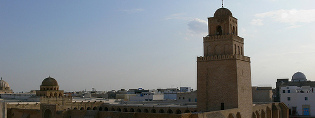Tunisia (MNN) — Protests erupted in Tunisia’s streets Monday as the prime minister announced a national unity government.
Although the new unity government negotiated with the opposition parties and would appoint ministers of the interior, state, finance, and defense from the old ruling party, people still protested the new coalition government.
It took one month for Tunisia–long considered stable–to disintegrate. It started on December 17 when an unemployed graduate set himself on fire. Soon, thousands were in the streets demanding more job opportunities and a higher standard of living.
Police clashed with the protesters for the next nine days, which fueled their outrage at the oppressive regime. On December 28, President Zine el-Abidine Ben Ali warns protests are unacceptable and those using violence will be punished.
By January 13, the president promises major reforms and promises not to run for office in 2014. A day later, he declares a state of emergency, dissolves parliament, and promises to hold legislative elections within six months.
The violence continues and finally, Ben Ali renounces power, flees to Saudi Arabia, and the Speaker of Parliament is sworn in as interim president and forms a coalition government.
Todd Nettleton with Voice of the Martyrs says it’s hard to say what will result from the hurried changes, however, “I don’t think we can anticipate a positive change, at least in the short term. This is a country with less than half a percent of the population as Christian. It’s pretty unlikely that suddenly those believers are going to be celebrated by their government or by their countrymen.”
While it seems that the community of believers is a little larger than thought previously, the attitude of the authorities has changed. Foreign Christian residents experience more inspections and suspect their phones are tapped.
“They have said, ‘We’re not going have a law that is in opposition to Islam.’ It’s unlikely that the new government, whenever that gets situated, is going to change that policy. So I think that we need to pray for the believers.”
According to Open Doors’ World Watch List–a compilation of the top 50 countries where persecution occurs, pastors of ex-pat churches are watched and the materials they use are monitored closely.* Nettleton says, “Voice of the Martyrs is involved, but I can’t say much more than that. Because there are so few Christians in Tunisia, anything we say publicly about what we’re doing there can end up in them being targeted.”
However, Nettleton hopes this situation could lead to open doors for the Gospel. “When there is upheaval, people are thinking about eternity; they’re thinking about important things: What’s worth living for? What’s worth dying for?’ That can be a time when revival strikes. It can be a time when the Spirit of God moves within a country.”
We have a link for details on how VOM helps the persecuted church here.
*Tunisia ranks 37th (up 5 points) on the World Watch List 2011.

